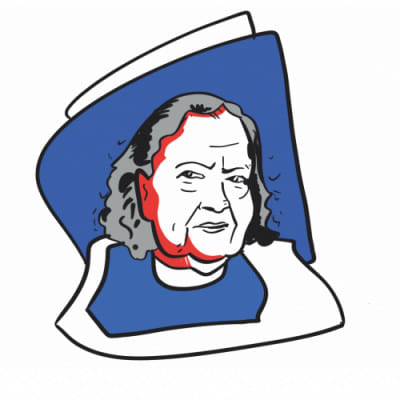LAILA NUR: A force of resilience

Laila Nur first stood up against the Pakistan government as a schoolgirl of only 15, just about to sit for her SSC exams in 1948. At a meeting of the local Muslim League's women's group at the town hall in Comilla, she was incensed to hear the leaders dismiss Bangla as the language of 'Hindus'. An irate Nur then stood up to say these notions were baseless. "I said that Bangla had the capability to be the state language—and looking at the numbers of Bangla speakers, only Bangla should be the state language. The decision to make Urdu the state language was completely unreasonable." Having expressed an unpopular opinion, Nur was told to leave quickly—the police were everywhere and she could be arrested. "I was scared for the next few days... the only comfort I had was that I had said nothing wrong."
Laila Nur, Language Movement veteran, academic, writer, and translator, was born on October 5, 1934, in Daudkandi, Comilla. Her childhood was spent in Bihar where her father worked. She passed her Higher Secondary School Certificate (HSC) exams in 1952 and received a Bachelor of Arts degree in English Literature from the University of Dhaka in 1956.
While in college, she continued using her voice in favour of the language movement—expressing her opinions in writing as the movement progressed over the years. While a student at the University of Dhaka in 1955, the Pakistani police and army kept a stern watch on campus. "The girls hung up big black flags on the roof of the hostel—the army entered forcefully and took those down." That was the night of February 20—the following day she would be arrested.
On the morning of February 21, Nur and her fellow female students had started their meetings and peaceful protest. At around noon, an army truck came and started beating them with batons. Nur along with Husne Ara escaped to the library balcony. "When the army came to handcuff me, I rebuked them saying —Don't touch me! Just tell me where to go." They were told to get on the truck and were taken away, but only the two of them weren't in handcuffs thanks to Nur. More than 20 female students were arrested that morning. The students slept on the floor of a jail cell that night, alongside the female prisoners. They were charged with breaking section 144.
Nur was freed after 21 days in jail, but her fight didn't end. Later in life, Nur continued to carry on fighting for the goals of the language movement, saying that Bangla was yet to be used everywhere, citing the High Court.
Nur credited her knowledge at such a tender age, to be able to stand up to much older women and local leaders, to her father who kept their house stocked with books; she and her siblings were all well-read. Following her graduation from DU, she joined Comilla Victoria Government College in 1957 as the first female member of the faculty. When asked what her life's success has been, Nur said, "In my teaching life, thousands of students have passed through my hands and become established. This is my success. Rafiqul Islam, who proposed declaring Feburary 21 as International Mother Language Day, was one of my students."
Nur retired from teaching in 1992. She continued writing—for newspapers and magazines—and has translated works of noteworthy poetry into English. In 2014, Nur received the Binoy Sommanona Award for her contribution to the Language Movement and to the field of education. She died in May 2019.
Sources: Interview with Bashar Khan of Anannya magazine; Interview with Sohrab Hasan, Prothom Alo (March 8, 2016)

 For all latest news, follow The Daily Star's Google News channel.
For all latest news, follow The Daily Star's Google News channel. 


Comments